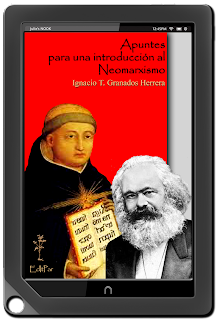Fantastic beasts and where to find them
Everyone knows that Harry
Potter is a "B" series with a lot of luck, because it's like a Tolkien
rewritten by Paulo Coelho; which is not surprising, because it is this
simplicity that owes its tremendous success, in this decline of the popular
culture in which Modernity decays. After all, it is also true that Tolkien
himself was a popular synthesis of the Nordic sagas; rather than with a
non-mercantilist sense, which allowed him to reproduce the subtlety and
complexity of these traditions in the epitome of fantastic literature. In any
case, even as a Tolkien passed by the water of banal populism, Harry Potter had
a certain consistency; which was enough to justify the avalanche of special
effects with which the cinema made it more colorful, to the point of
dissimulating its common places.
That is not the case with
Fantastic beasts and where to find them,
whose inconsistency makes it almost offensive; to the point that, if Harry
Potter was a sort of Tolkien rewritten by Coelho, this is like Coelho himself,
but against Lovecraft. The metaphor is almost literal, because in the film
there is even a certain allusion to the icon of Cthulhu, however bland and
childish; as in short, almost all the figures equally inspired by the medieval
bestiary according to the sublime Lovecraft, which more than topical and
recurrent are simplistic and trite. Within all that, an improbable mixture,
that tries to incorporate the tradition of the North American horror; but
without ever passing from the common place and the easy appointment, of
iconographic value, without real dramatic substance.
In fact, dramaturgy is
the weakest point of the whole film, with an atrocious poverty that makes him
limping from all his legs; followed closely by performances at the level of
caricatured cliché and the carving of so reductive. Of these, stands the one of
Eddie Redmayne, demonstrating that its characterizations are not great and
picturesque but a mere trick; repeating what turns out to be mere tics of pure
efficacy, which he repeats from The good shepherd
to The Theory of Everything, in
characters so different that they open their own world of possibilities. Any
way the performances in general are so bad, that perhaps he did it in a doubly
histrionic effort; to be in tune with a cast that seemed a fair of freekies,
and not precisely because of the colorful but by the grotesque.
However, Dan Fogler's
performance, whose scenic decency is the only colorful note in that desert landscape,
should be emphasized; making it clear that a good actor rises above the worst
dramaturgies, setting his own scale of values. In fact, that would be the main
flaw of the film, a drama so weak as to seem non-existent; so that the
recurring cliché of the actors is justified, as the astonishment at the lack of
a real role. There is no mistake, all fantasy is no more than a representation —that
is what it means— and therefore is always effective; because it is armed as a
binary sequence, in whose twisting it hides its dramatic value, like a
dramaturgy.
The problem with Fantastic beasts is this braiding, for it is not the same a dramatic event by
the sublime Lovecraft that by the vulgarity of Coelho; and so, even if this
history makes sense, it does not manage to override the bragging of technical
resources and special effects. No prequel has the fate of the sequel that
justifies, and less of the history in which it originates; because it is
usually a false stretch of the first success, which is already wasted in the
continuations. The only difference was Tolkien's Silmarillion, but just because it was not a mercantilist operation
but a passion of when capitalism was inaugurated; not of this false sublimity
in which everybody pursue success and some seem to achieve it, regardless of
the experience itself.







